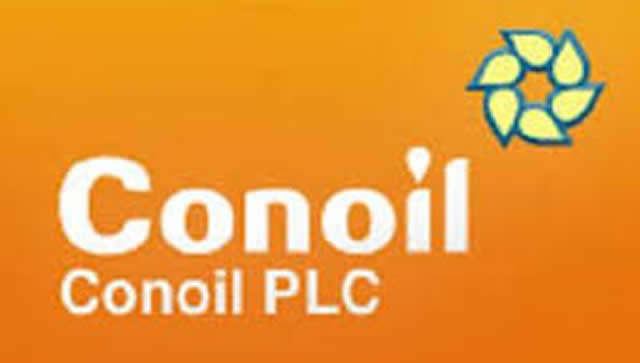Conoil Plc, a prominent player in Nigeria’s petroleum marketing landscape, experienced a significant downturn in its financial performance during the first half of 2025. The company’s half-year report, submitted to the Nigerian Exchange Limited, revealed a dramatic 89% year-on-year decline in profit after tax, plummeting to N900.4 million from N8.02 billion in the corresponding period of 2024. This substantial contraction in profitability stemmed primarily from a confluence of factors, including a notable decrease in revenue and a simultaneous surge in distribution and finance costs. The company’s revenue stream for the six months ending June 30, 2025, contracted by 20.4% to N143.65 billion, compared to N180.57 billion in the first half of 2024. This revenue decline, coupled with escalating expenses, created a challenging operating environment for Conoil.
A deeper examination of Conoil’s financial statement reveals the specific areas contributing to the profit slump. While the company managed to reduce its cost of sales by 18.9% to N132.28 billion from N163.05 billion in the previous year, this cost reduction was insufficient to offset the revenue decline, leading to a 35.2% drop in gross profit, which settled at N11.36 billion compared to N17.53 billion in H1 2024. The combination of shrinking revenue and a squeezed gross profit margin placed immense pressure on the company’s bottom line. Further exacerbating the situation were escalating operating expenses, particularly in distribution and finance.
Conoil’s distribution expenses witnessed a notable increase, rising to N2.24 billion from N1.88 billion in H1 2024, while administrative expenses remained relatively flat at N3.21 billion compared to N3.20 billion. However, the most significant contributor to the decline in profitability was the surge in finance costs, which more than doubled to N4.76 billion from N2.22 billion in the comparable period. This dramatic increase in finance costs suggests a higher cost of borrowing or a substantial increase in the company’s debt burden, both of which can strain profitability. As a result of these converging negative factors, Conoil’s profit before tax experienced a precipitous decline of 88.8%, falling to N1.15 billion from N10.22 billion in the first half of 2024.
Despite the sharp decrease in pre-tax profit, tax expenses also declined proportionately to N246.6 million from N2.20 billion in H1 2024. This reduction in tax liability, however, provided little respite to the overall profit picture, bringing the net profit to a significantly lower N900.4 million. The impact of this earnings contraction was directly reflected in the company’s earnings per share, which plummeted to 130 kobo from 1,156 kobo in the same period last year, signaling a substantial reduction in shareholder returns. Unsurprisingly, given the profit downturn, Conoil did not declare any dividends for the period.
Despite the challenging financial performance in the first half of 2025, Conoil’s balance sheet demonstrated some resilience. The company’s total assets registered a slight increase, reaching N117.56 billion from N114.95 billion at the end of 2024. This marginal growth in total assets was primarily driven by current assets, which stood at N111.7 billion. A significant portion of the current assets was composed of trade and other receivables amounting to N89 billion and cash and bank balances of N7.85 billion. These figures suggest that while profitability suffered, Conoil maintained a reasonable level of liquidity.
On the equity side, there were indications of the profit squeeze, with shareholders’ funds experiencing a minor decline of 1.9% to N40.39 billion from N41.17 billion in the comparable period of 2024. Retained earnings, a key indicator of accumulated profitability, also fell by 2.1% to N36.2 billion, mirroring the reduced earnings during the period. This decrease in retained earnings further underscores the impact of the profit downturn on the company’s financial position. The overall picture painted by Conoil’s half-year results is one of significant financial challenge, marked by declining revenue, escalating costs, and a substantial drop in profitability. While the company maintained a relatively stable balance sheet, the erosion of shareholder returns and the absence of a dividend declaration highlight the severity of the earnings pressure faced by Conoil during this period.














